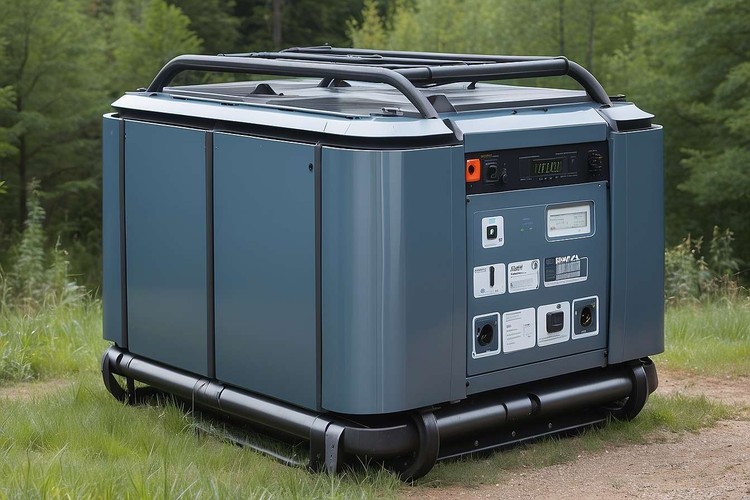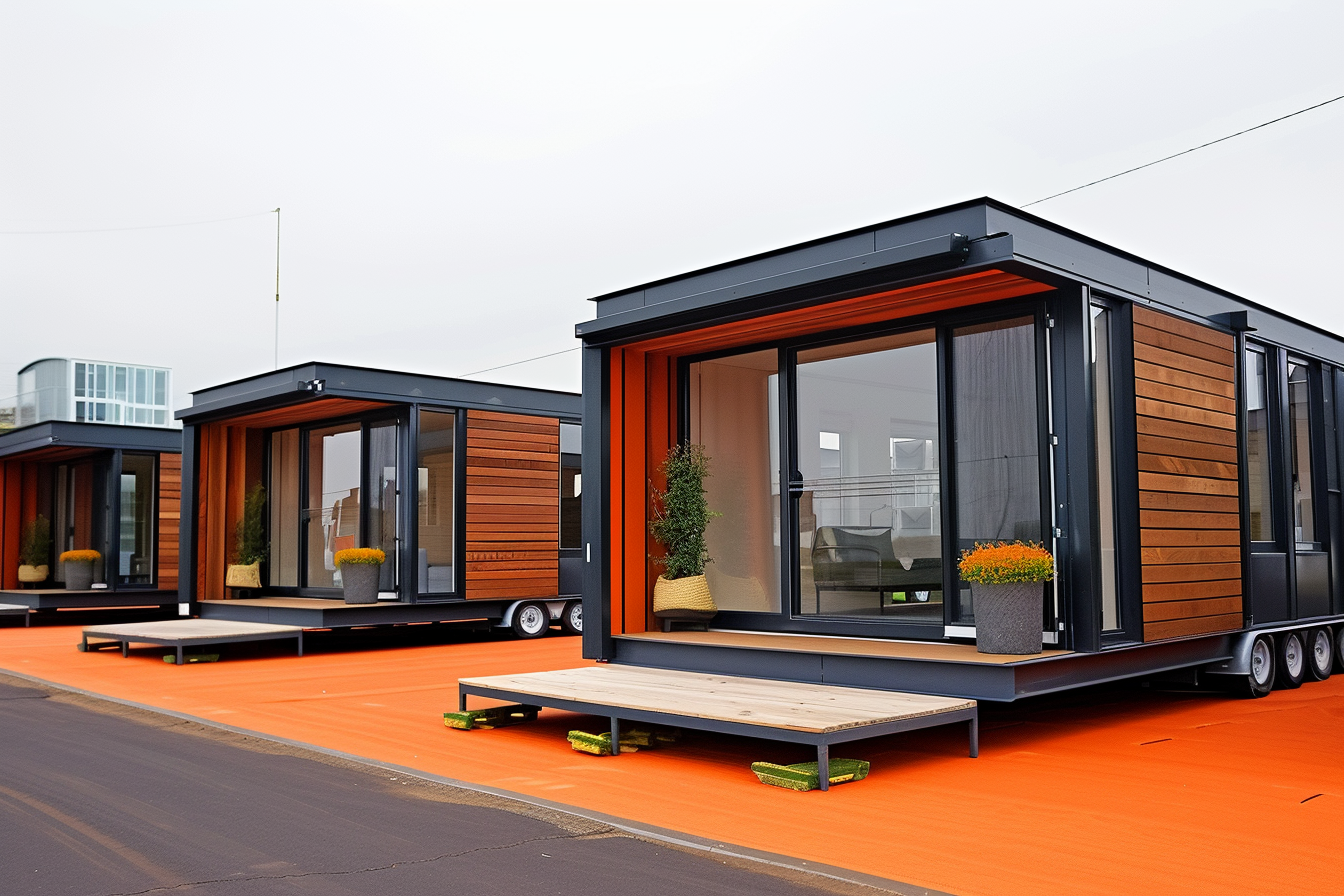Top Portable and Home Power Generators for Emergencies and Solar Use in the United States 2025: An In-Depth Guide
Unexpected power outages can leave you without electricity for essential appliances and communication. How can Americans prepare with reliable, efficient generators in 2025? This guide reviews top portable and home generators, including solar, for emergencies, travel, and everyday use.

Exploring Various Types of Generators for Emergencies and Travel
Understanding the different kinds of generators and their uses is essential when choosing the right one:
- Portable Solar Generators: Battery-based power stations charged via solar panels or AC sources. They provide quiet, emission-free operation during emergencies or travel and are ideal for sensitive electronics.
- Gasoline/Propane Portable Generators: Fuel-powered devices offering higher wattage for extended periods. Typically more powerful but louder and necessitate fuel storage.
- Dual-Fuel Generators: Operate on gasoline or liquid propane, granting fuel flexibility critical during prolonged outages or fuel scarcity.
- Home Standby Generators: Permanently installed systems, usually fueled by natural gas or propane, delivering continuous whole-home backup with installation costs involved.
Essential Factors for Selecting a Generator in the 2025 U.S. Market
To make a well-informed decision, consider the following:
- Power Capacity: Expressed in watt-hours (Wh) for solar generators and running/surge watts for fuel-powered ones, indicating how many devices can run at once and for how long.
- Fuel Type and Availability: Solar generators rely on sunlight and renewable energy; fuel generators use gasoline, propane, or dual fuel. Dual-fuel models offer added flexibility.
- Charging Speed and Solar Panel Efficiency: For solar systems, the efficiency percentage reflects how effectively panels convert sunlight into electricity. Higher efficiency enables faster charging.
- Portability and Weight: Vital for travel or frequent moves. Solar generators range from lightweight options (~18 lbs) to bigger units (~60 lbs+), while fuel generators can exceed 200 lbs but may include wheels.
- Output Ports and Features: Multiple USB, AC, DC ports, wireless charging, UPS (uninterruptible power supply) capability, safety features like carbon monoxide detectors, and remote start improve functionality.
- Noise Level: Inverter generators and enclosed-frame designs help minimize noise, important in residential settings or outdoor environments.
- Compliance and Safety: CARB compliance is mandatory in California and recommended elsewhere for cleaner emissions. CO detection is a key safety feature.
- Price and Warranty: Costs vary significantly based on size and features. Warranty coverage is an important factor for long-term dependability.
Top Portable Solar Generators in 2025
High-Capacity, Fast-Charging Solar Generators
- Large-Capacity Solar Generator Examples: These units typically offer capacities between 2,000 Wh and 4,000 Wh, delivering substantial power for home backup or extended travel. Supporting multiple solar panels (six or more) and fast AC charging, they can reach full charge within 2 to 3 hours. Such models often feature solar panels exceeding 23% efficiency with numerous output options to power devices simultaneously.
Compact and Rapid-Recharge Solar Generators
- Quick-Charge Compact Units: Smaller stations around 600 Wh capacity recharge fully in less than 2 hours, offering a balance of portability and ready power. They include informative displays indicating power input/output and can handle about 200W solar input, perfect for camping and short-term emergencies.
Budget-Friendly Small-Scale Solar Kits
- Affordable Solar Kits: Usually equipped with roughly 600 Wh battery capacity and single solar panel inputs with around 20% efficiency. They have slower charging times but suit minimal power requirements and come with multiple output ports.
Medium-Sized Portable Solar Generators
- Weighing less than 20 pounds and featuring around 800–900 Wh usable battery capacity, these units support charging multiple devices simultaneously via USB, AC, and DC ports, sometimes including wireless charging pads. They offer a good mix of cost-effectiveness, portability, and power for emergency or travel use.
Suggested Portable Fuel Generators for Home Backup and Travel
Dual-Fuel Portable Generators for Greater Versatility
-
Mid-Range Dual-Fuel Generators: Deliver about 3,900 running watts, sufficient for essential appliances like refrigerators, sump pumps, and lights. Features often include remote start, CO detectors, enclosed designs for quieter operation, and inverter technology to supply clean power. These are well suited for emergency home backup.
-
High-Capacity Dual-Fuel Generators: Provide around 8,500 watts, able to run multiple home essentials simultaneously, such as window AC units and freezers. Usually on wheels and heavier, these can be connected directly to home electrical panels for broader backup coverage.
Gasoline-Only Generators with High Output
- Premium Portable Generators: Offering more than 5,000 watts, designed for frequent use and capable of powering many household devices. Modern iterations can include Bluetooth monitoring apps for real-time power management and operate more quietly. Typically higher-priced but offer enhanced reliability and advanced features.
Affordable Portable Options
- Smaller inverter generators under 4,000 watts, dual-fuel enabled, and lightweight (~50 lbs), suitable for camping, tailgating, and limited home backup. They incorporate CO detection and inverter technology, ensuring clean and quiet power delivery.
Practical Tips for Generator Usage and Installation
- Sizing Your Generator: Assess the wattage required for critical appliances. For instance, refrigerators generally need about 600 watts, sump pumps up to 1,500 watts, and window AC units around 1,000 watts. Using appliances at different times can help reduce total wattage needs.
- Safety Guidelines: Always run generators outdoors in well-ventilated spaces to prevent carbon monoxide poisoning. Units with integrated CO detectors provide an added safety measure.
- Professional Installation: Consult a certified electrician for connecting generators to home circuits and installing transfer switches, ensuring safe and efficient power distribution.
- Noise and Environmental Considerations: Inverter and enclosed-frame generators produce less noise and cleaner emissions. Be mindful of local regulations and neighborhood convenience when choosing a generator.
Advancing Sustainable Solar Solutions for Backup Power
Solar generators offer an environmentally friendly and quiet backup power option that avoids fuel storage needs and reduces ecological impact. Although solar units generally have higher initial costs and their effectiveness depends on sunlight availability, their increasing efficiencies and fast charging abilities make them practical for many U.S. households and travelers in 2025.
By pairing solar panels with portable battery stations, users can maintain essential power during outages or while on the move, embracing renewable technology. Features such as UPS functionality and wireless charging make these solutions even more convenient for daily and emergency use.
Conclusion
The best portable and home power generators for emergencies and travel across the United States in 2025 vary according to power demands, fuel preferences, and environmental goals. Solar generators provide clean, quiet, and renewable energy with many models balancing capacity, charging speed, and portability. Dual-fuel and gasoline portable generators deliver strong power output and fuel flexibility suitable for home backup and travel, incorporating advanced safety and user-friendly features.
Careful evaluation of power requirements, charging options, portability, safety, and regulatory compliance will help consumers select the most suitable generator, ensuring readiness for power outages and off-grid experiences.
Disclaimer
Generator and solar kit prices and availability differ by region, dealer, and current market status. Consumers should confirm details and consult local suppliers or professionals before purchasing or installing generator equipment.
Sources
- CNET: Best Solar Generators of 2025
- The New York Times Wirecutter: The Best Portable Generators
- EnergyBot: Best Home Backup Generators for 2025




